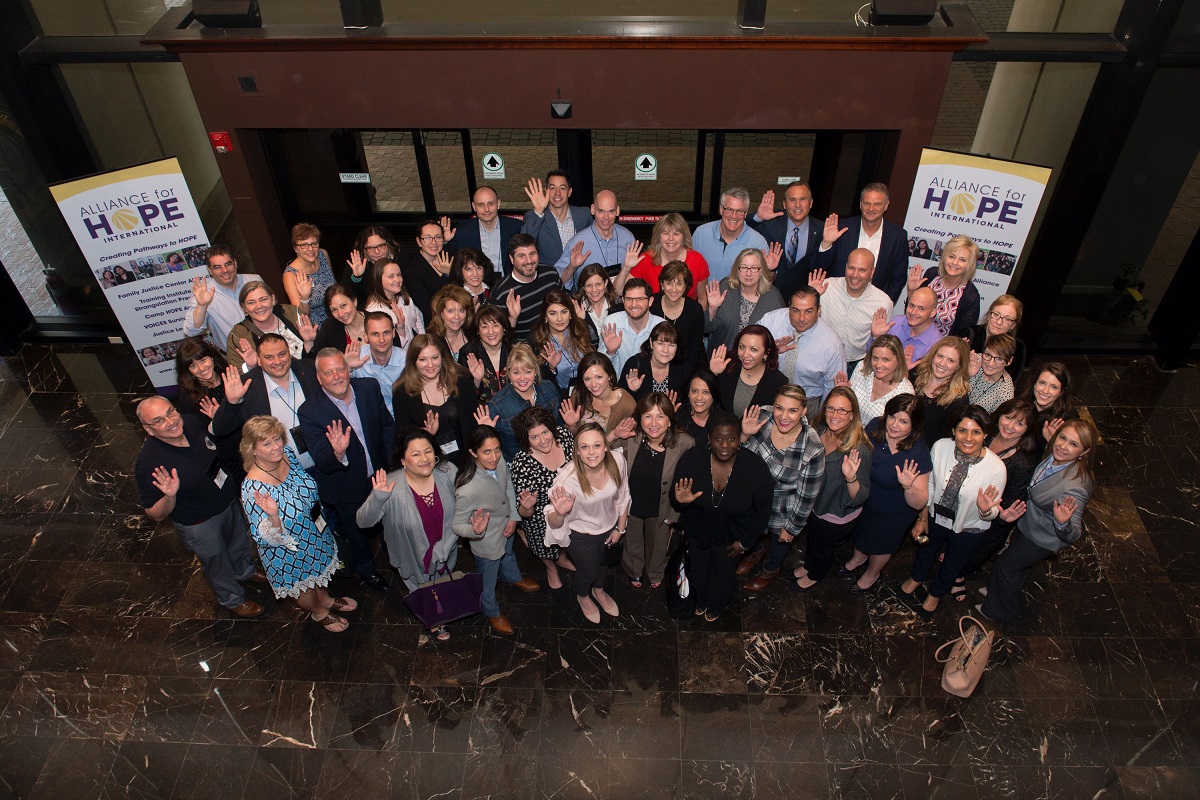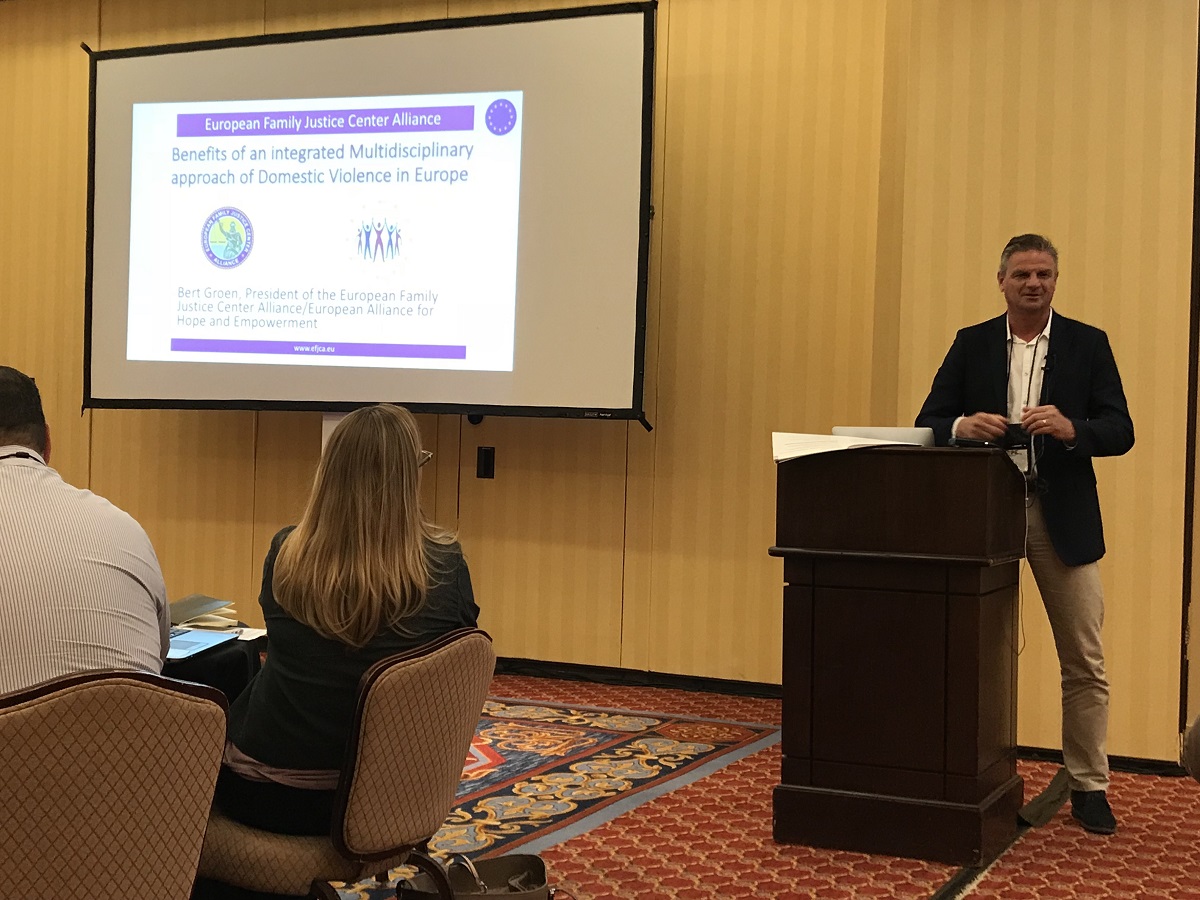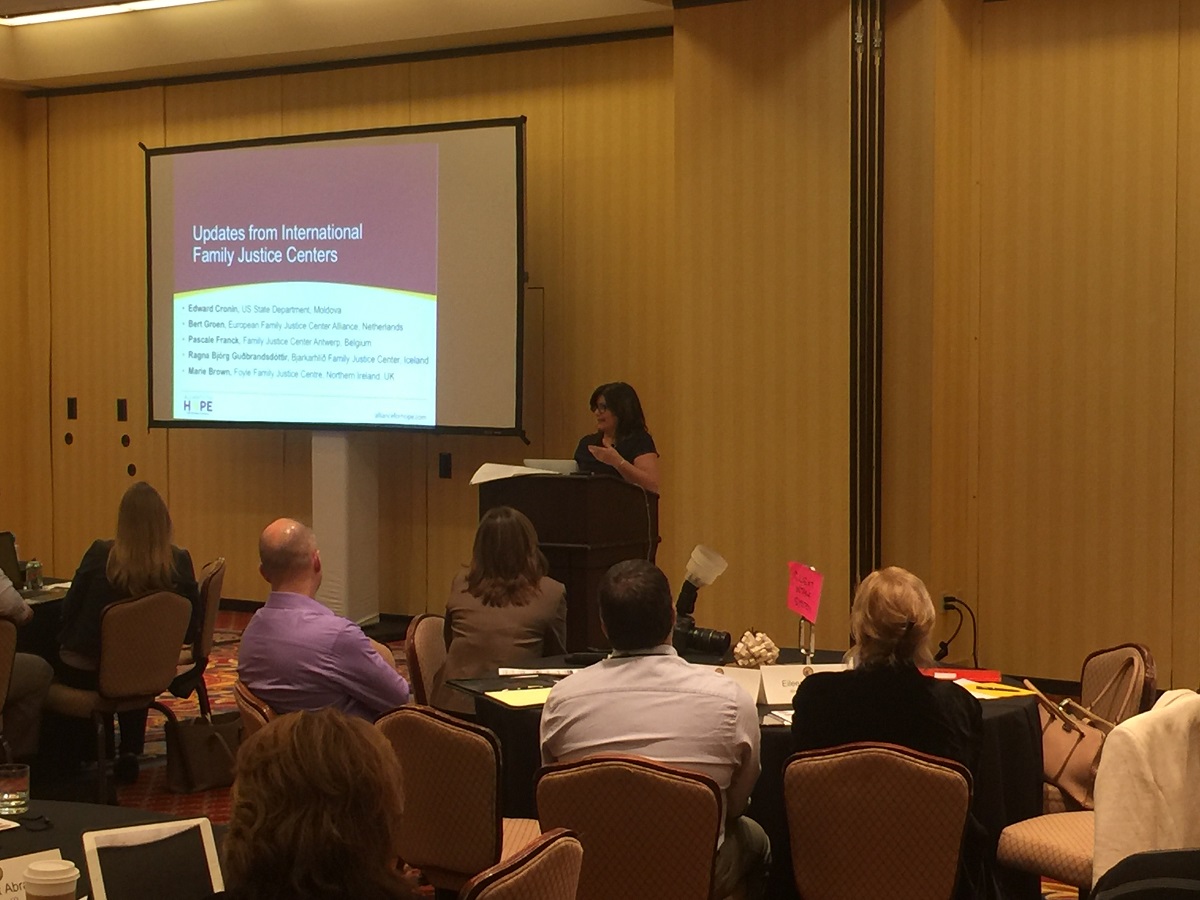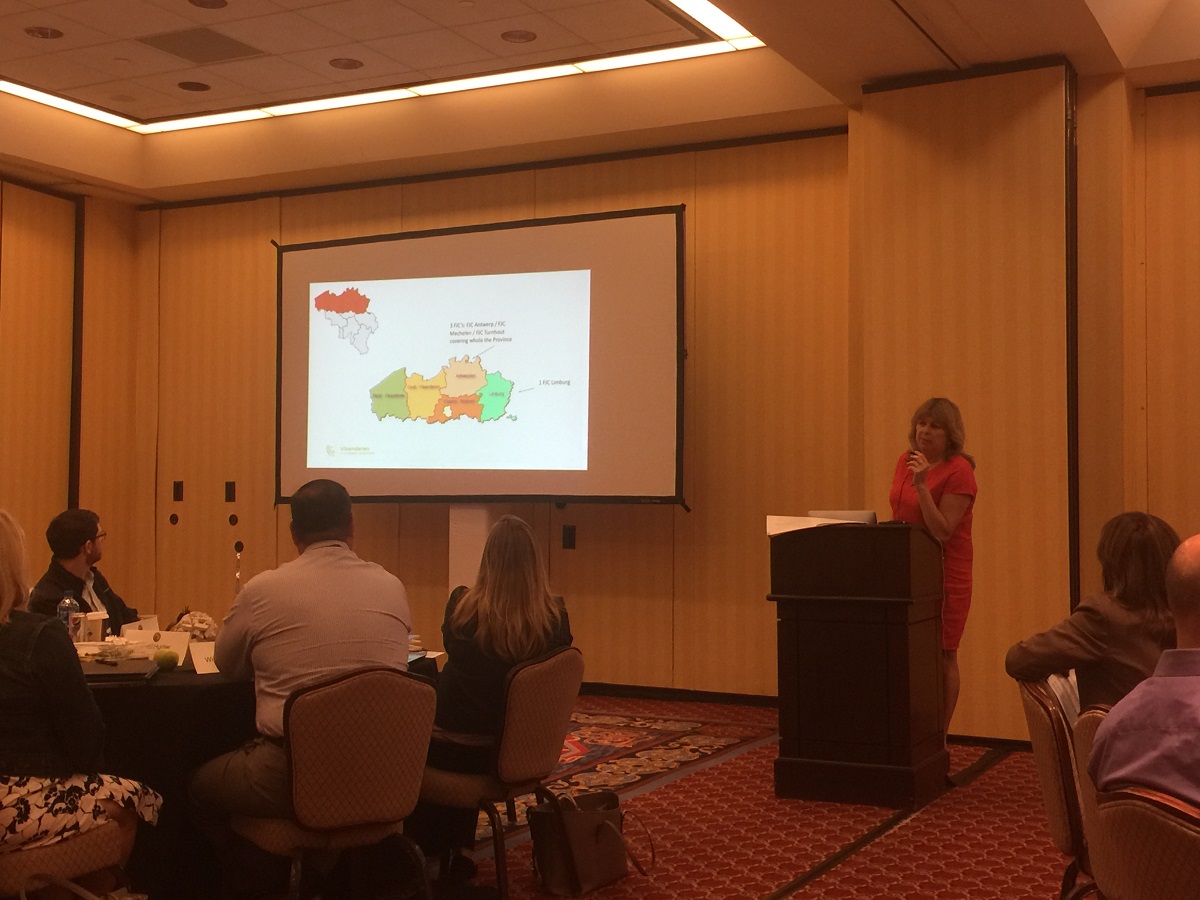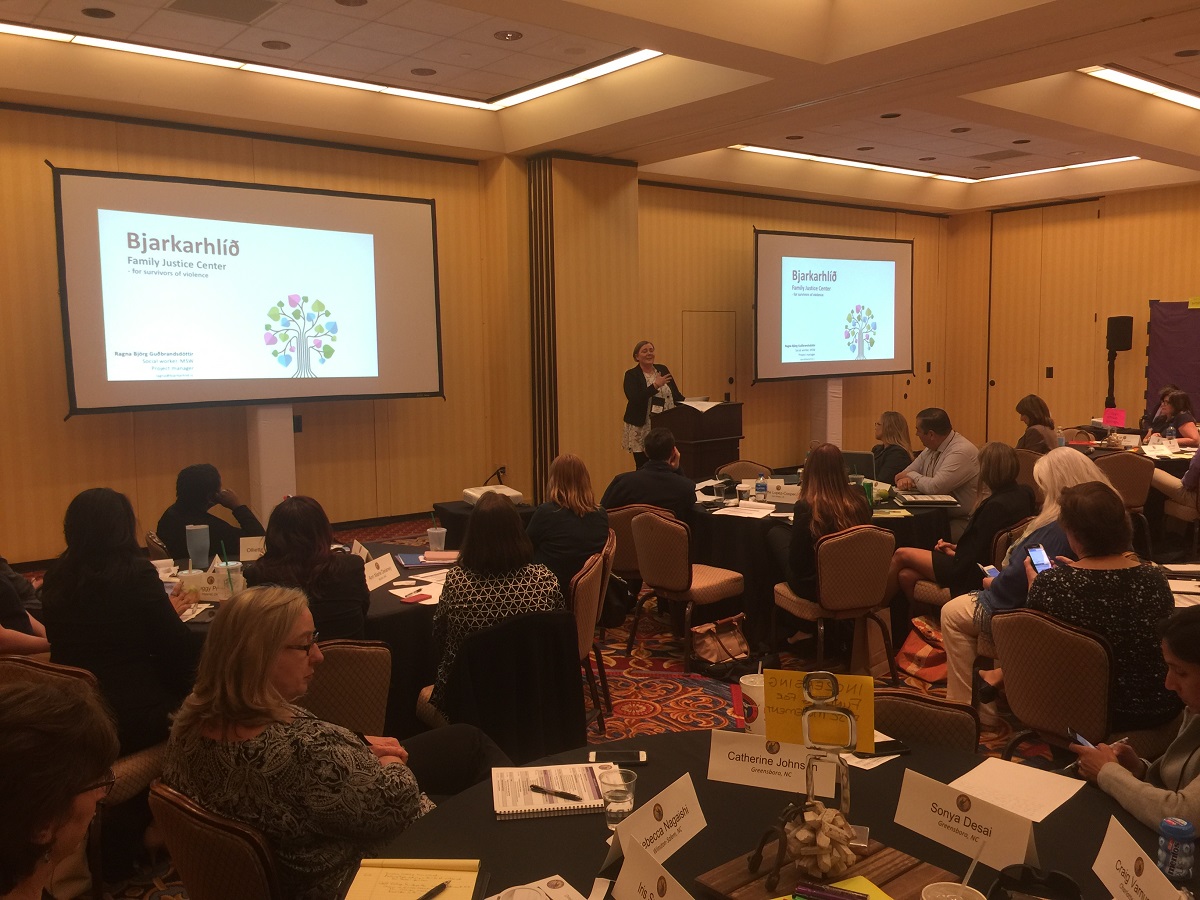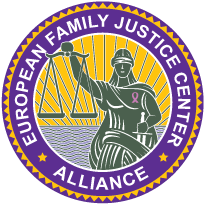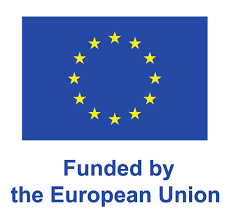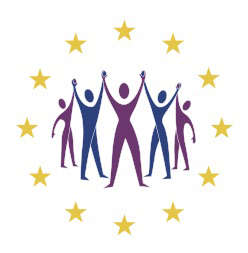Monday 23th of April, Fort Worth
Blog Tuesday 24th of April Blog Wednesday 25th of April Blog Thursday 26th of April
What happened today @

"Hope is the belief that you're future can be better than your past"
This statement reflects the basis of the pre-conference of the 18th Annual International Family Justice Center Conference.
If you can increase hope in the life of survivors, adults and children, of violence you really can work on the effects of trauma and give people back control over their lives. This message from Casey Gwinn and Chan Hellman was the main theme and immediately set the tone for the coming conference days.
Hope is the driver for everything else, Hope is the driver for peoples life.
If you ask people "What is te opposite of Hope?", the answer is often: "Despair". Chan and Casey stated that despair isn't the opposite of Hope.
Despair is part of hope: if you are in desperation, you have still hope. There is still something you want to fight for.
The opposite of Hope is apathy: If you don't care anymore... That is the bottom of the hope scale.
Working with survivors who lost hope starts from there. You can move some one from apathy: you can find something to get them out of their apathy, to give them something to start moving again.
In lot of approaches in the work with victims of abuse and violence, the focus is on resiliency. That is important: resilience is about bouncing back from bad things that happens to you.
Hope goes further. It's going forward and not only bouncing back.
Hope is the mindset that drives resilience behavior. Hope makes you go forward.
Hope is measurable and observable.
Observable hope can also be measured for little children (even toddler age). Children to young to express there hope themselves can be rated by the team members, mentors, care takers in their hope evolution.
Children were rated by the mentors working with the children.
Staff wellness is an important issue to address as well. To be able to work on hope with survivors, it's important that cooperators experience e high hope scale themselves.
Well being of the staff has to be embedded as a strategic goal of the FJC. Secondary trauma and burn-out is a threat for the FJC. Working on prevention and resilience is important. To address secondary trauma has to be implemented and given the needed attention.
There are various ways to embed staff wellness activities and focus: examples are a wellness survey conducted every year, a sub-committee in the FJC focussing on the staff wellness, offering services as Reiki, massage, acupuncture, mindfulness, yoga, organizing emotional wellness groups,...
Wellness should be offered both for clients and staff/co-operators.
The group exchanged in working groups on:
- Client Intake System
- Statewide Initiatives
- Addressing confidentiality
- Research and evaluation
- Increasing funding for FJC Movement
- Learning exchanges
The pre-conference day was attended by a large group of motivated FJC-directors, cooperators and supporters from all over the USA and abroad.
From Europe, there were attendees from Iceland (FJC Reykjavik), Northern Ireland (FJC Derry), Belgium (FJC Antwerp), The Netherlands (Alliance) and a large group of representatives of the government of Moldova.
Bert Groen, Pascale Franck, Ragna Bjorg Gudbrandsdottir and Marie Brown presented the European FJC work and movement.
Download presentations
- Family Justice Centers in Belgium
Pascale Franck Co-director FJC Antwerp - Benefits of an integrated Multidisciplinary approach of Domestic Violence in Europe
Bert Groen, President of the European Family Justice Center Alliance/European Alliance for Hope and Empowerment - Bjarkarhlíð Family Justice Center - for survivorsof violence
Ragna Bjorg Gudbrandsdottir, Socialworker, MSW Projectmanager
